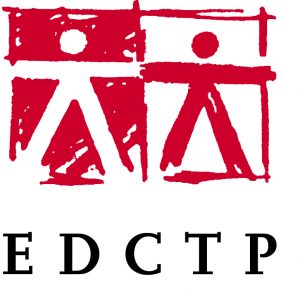
09 Feb New IMPALA project will develop a durable, affordable monitoring system for hospitalized children in low-resource settings
Every year, more than three million children in low-resource settings die due to constraints in healthcare systems. These constraints impede widespread supply of high-quality healthcare.
In low-resource hospitals, small but important changes in a child’s health can go unnoticed. Often the window of opportunity to intervene and prevent children dying from curable or preventable complications is missed due to suboptimal monitoring. In high-resource settings, monitoring heart rate, blood pressure and respiratory condition is commonplace. Yet, these monitoring mechanisms are not available in countries like Malawi.
Monitors cost a few thousand euros with disposable sensors that require constant repurchasing. These prices exceed the financial capacity of low-resource hospitals. Additionally, these monitors are designed to be used in high-resource hospitals, detecting diseases common in high income countries, facilitating interventions only available in high-resource settings and thus they prove ineffective in low resource settings and tropical conditions due to heat, humidity, frequent power cuts.
The partners of the IMPALA project are collaborating to lower the staggering amount of preventable child deaths. This interdisciplinary project will develop a sturdy, easy-to-use, affordable, high-tech monitor that can be implemented even in settings with limited resources and capacity. It will produce medically engineered mats that a child can lay on and detect changes in vital signs that may indicate serious illness hours before even highly trained healthcare workers would be able to identify the issue. The idea for the IMPALA project began years ago when paediatric and intensive care specialist, Dr. Job Calis (principal investigator of the program), was working in Malawi in the paediatric intensive care unit. He noticed that a significant percentage of children were dying from preventable causes.
“Timing can be a life-saver in the hospital setting. The timely detection of a hospitalized child in critical condition can save their life. This is what we are striving for with the new monitoring systems.”
Medical engineering company Goal3 will be developing the mats and is conducting a crowdfunding campaign for the project. They are partnering with the Polytechnic department biomedical engineering of the University of Malawi to develop a system that meets local demands.
AIGHD is heavily involved in the implementation and evaluation part of the project – looking beyond the technical efficacy of the tool and analyzing how it works in practice in the given context. Prof. Wendy Janssens , Chris Pell and team will examine the effects of the monitoring systems in a real-life setting through increasingly large pilot interventions from a social, behavioral, and economic perspective in addition to the medical evaluations. The IMPALA project will be assessed in two clinical centers in Malawi: Blantyre (College of Medicine) and Zomba (Training Research Unit of Excellence).
The project builds on strong inter-university connections among the University of Amsterdam and the Vrije Universiteit Amsterdam, as well as the collaboration between researchers in Malawi and Europe. It is part of the official collaboration signed in 2020 between the Emma Children’s Hospital of the Amsterdam University Medical Center and the College of Medicine Malawi. The proposal for the project has been favorably evaluated and we hope to sign a Grant agreement with the European research fund EDCTP in March 2021. The project brings together academic, research and technology institutes in the Netherlands, Malawi and the United Kingdom, and will accomplish the following objectives:
- It will further develop a tablet-assisted monitoring system suitable for paediatric care in hospitals allowing timely, lifesaving interventions;
- develop algorithms that predict critical illness based on vital signs and enhance the accuracy of these by combining vital signs with clinical data and/or biomarkers;
- conduct extensive implementation research to identify key behavioral, social and other barriers to adoption of the system and implementation in a real-life setting;
- and design a multi-country random control trial assessing the impact of the monitoring device and implementation strategy on hospital paediatric survival.
This project demonstrates the fruitful collaboration between Malawian and European partners as well as the interdisciplinarity of AIGHD.
For more information on the IMPALA project, please contact the principal investigator, Dr. Job Calis: job.calis@gmail.com


This project is part of the EDCTP2 Programme supported by the European Union.
